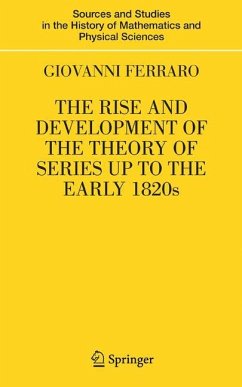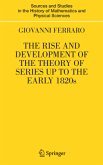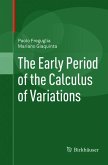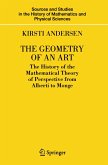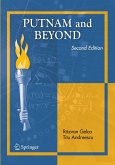The theory of series in the 17th and 18th centuries poses several interesting problems to historians. Indeed, mathematicians of the time derived num- ous results that range from the binomial theorem to the Taylor formula, from the power series expansions of elementary functions to trigonometric series, from Stirling's series to series solution of di?erential equations, from theEuler-MaclaurinsummationformulatotheLagrangeinversiontheorem, from Laplace's theory of generating functions to the calculus of operations, etc. Most of these results were, however, derived using methods that would be found unacceptable today, thus, if we look back to the theory of series priortoCauchywithoutreconstructinginternalmotivationsandtheconc- tual background, it appears as a corpus of manipulative techniques lacking in rigor whose results seem to be the puzzling fruit of the mind of a - gician or diviner rather than the penetrating and complex work of great mathematicians. For this reason, in this monograph, not only do I describe the entire complex of 17th- and 18th-century procedures and results concerning series, but also I reconstruct the implicit and explicit principles upon which they are based, draw attention to the underlying philosophy, highlight competing approaches, and investigate the mathematical context where the series t- ory originated. My aim is to improve the understanding of the framework of 17th- and 18th-century mathematics and avoid trivializing the complexity of historical development by bringing it into line with modern concepts and views and by tacitly assuming that certain results belong, in some unpr- lematic sense, to a uni?ed theory that has come down to us today.
From the reviews: "Giovanni Ferraro's book must be regarded as an important contribution to the history of mathematical analysis ... . In summary, this book is thoroughly researched; it is written with a high degree of accuracy, and the broad range of fascinating material is, in general, very well organized. Therefore ... every college and university library should have a copy. In fact, extracts from the book could be used to inject historical perspectives into courses on analysis, and it will certainly appeal to historians in general." (Peter Ruane, MathDL, April, 2008) "The work is thoroughly referenced and should prove valuable to mathematical history researchers ... . Summing Up: Recommended. Researchers/faculty and professionals." (C. Bauer, CHOICE, Vol. 46 (01), September, 2008) "The author begins his detailed account with the arrival of the calculus with Newton and Leibniz, and their own treatments of series. ... The range of series and functions treated is impressive ... . The story stops with a brief notice of the start of the critical phase, especially concerning the convergence (or not) of infinite series, which was put forward by Cauchy and his followers ... . The book is a valuable contribution, possibly the single most substantial source on the topic." (I. Grattan-Guinness, Mathematical Reviews, Issue 2008 k)

